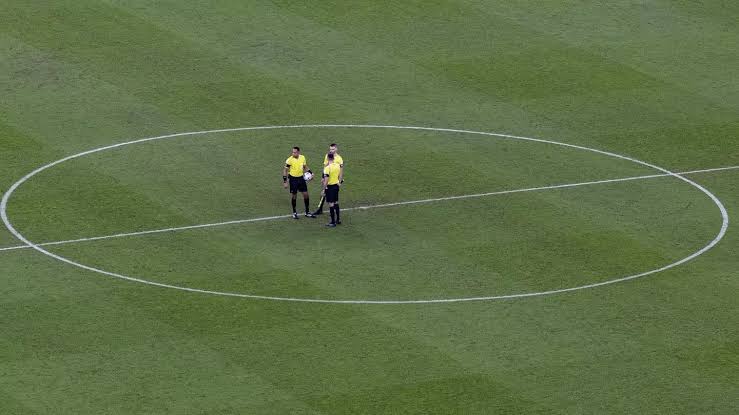While football fans are familiar with the game starting from the circular area at the center of the pitch, many aren’t aware of why it’s shaped that way.
- Real Madrid confirm Rodrygo asking price as Arsenal handed huge transfer boost
- Fans think Gyokeres has decided which team he will sign for after spotting major clue on Instagram
- Lionel Messi reveals the Premier League club Barcelona ‘hated’ more than Real Madrid
Supporters often pride themselves on knowing every detail about their team and the sport itself, but even the most devoted may not know every historical nuance—especially with professional football in England dating back to the 1800s. ..Continue Reading
One lesser-known fact lies in the origin of the centre circle, which was introduced in 1891 during a significant revision of the game’s regulations.
So why is it there, and what function does it serve in today’s matches?
Regardless of location, every professional game begins with a kick-off from the center spot, a procedure repeated after goals and at the beginning of the second half.
Although the circle has no tactical significance during normal play, it plays a key role during kick-offs by ensuring fairness.
Its size guarantees that opposing players remain at least 10 yards away from the ball until it is played, preventing early encroachment and maintaining the integrity of the game’s restart.
According to IFAB’s Law 8.1: “All players, except the player taking the kick-off, must be in their own half of the field of play. The opponents of the team taking the kick-off must be at least 9.15 m (10 yds) from the ball until it is in play.”
The significance of this rule grew in 2016 after an amendment allowed teams to play the ball backward from kick-off.
However, the centre circle’s function extends beyond the opening whistle—it also becomes crucial during penalty shootouts.
To maintain order and prevent interference, all outfield players, except the designated penalty taker and the two goalkeepers, are required to remain inside the centre circle until the shootout concludes.

